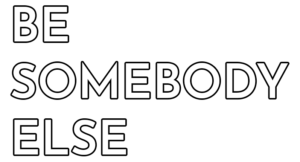Contempt

ALIENATION / PLAY
Leo Bersani wrote that ‘contempt cements the couple’. What seems paradoxical is revealed to be a most powerful form of bonding. Contempt makes somebody or something a strange object of desire. To feel contempt is almost to feast on someone. What a loss it can feel when someone contemptible slips out of sight.
If contempt plays a large part in your life it may have come as an answer to your panicked sense of alienation. A sense of not being part of things, of being disconnected. Feeling kept at a distance, unable to play life’s game you look for a loser who can take the brunt of your despair. More than likely you’ll bond through contempt, too.
Contempt allows politics to find an enemy: left hates right; right hates left. If you’ve ever been politically active you’ll have memories of meetings where someone or something on ‘your own side’ was savaged for not being right or left enough. Politics all too easily becomes a feast of individuals attacking those closest to them.
Bonding through contempt is like keeping a menacing beast. Take your eye off it and it will savage you. Groups who pass time lacerating others will rip into one of their own for the tiniest of reasons – and especially if somebody does something that might threaten them to feel ashamed.
Contempt is a terrible, violent anaesthetic to shame.
Fortunately contempt is easy to get out of your life. To quote Bob Newhart: ‘STOP IT’.
Then you may feel your shame, which will probably feel almost unbearable, until you realise (and this kind of epiphany can change everything) where that shame comes from. Talk to someone who doesn’t welcome contempt. It doesn’t need to be a therapist (the world of psychotherapy is as shot through with contempt as anywhere else).


